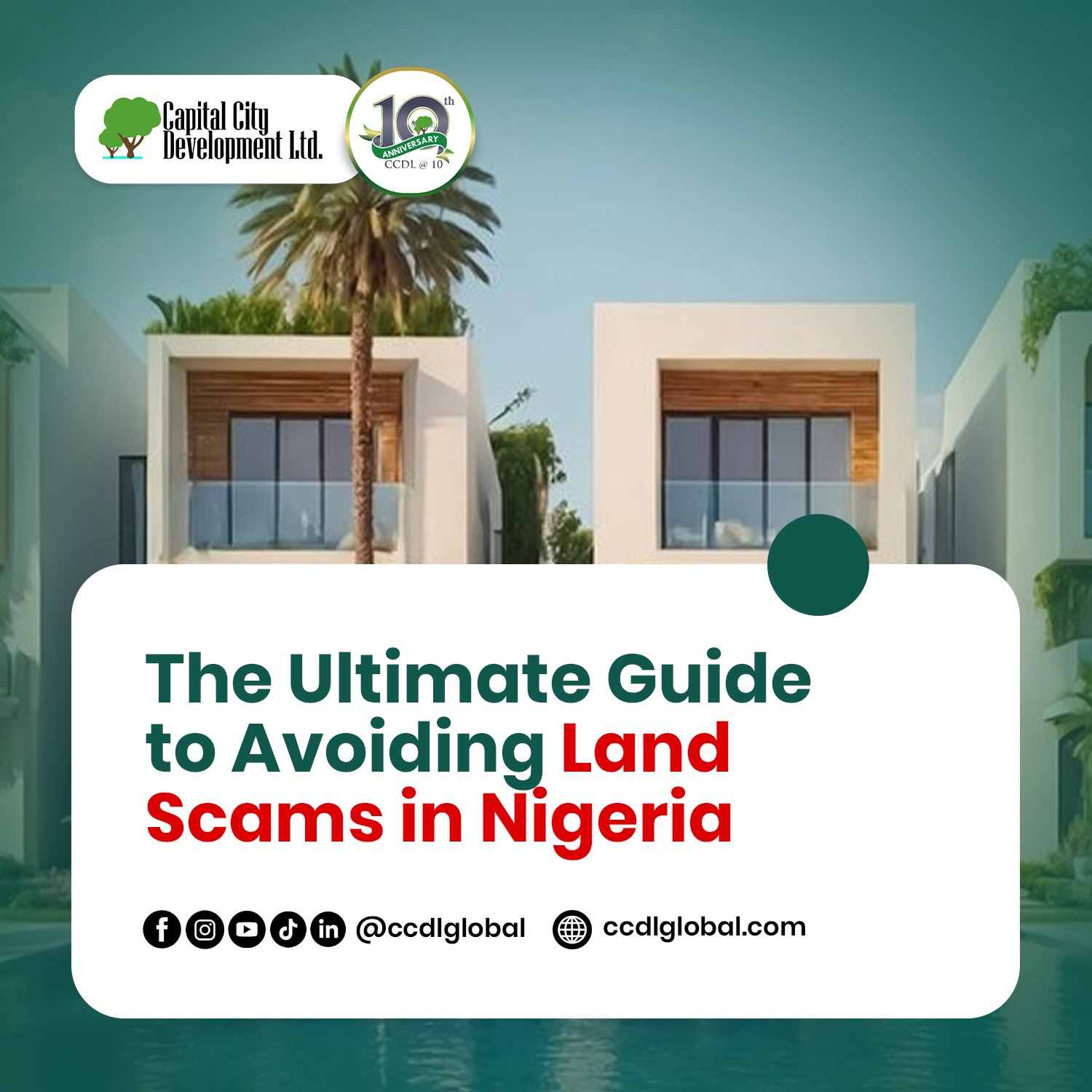The Ultimate Guide to Avoiding Land Scams in Nigeria [2025 Edition]
Buying land in Nigeria? Avoid land scams in Nigeria with this verified 2025 guide. Discover real-life scam stories, red flags, legal steps, and a downloadable due diligence checklist.
Before You Buy: True Stories of Land Scam Victims
In 2024 alone, thousands of unsuspecting Nigerians lost millions to land scams. From fake agents to double sales, the stories are painful but they all have one thing in common: they were preventable.
“I paid for a plot in Abuja, only to discover two other people had receipts for the same land. The agent disappeared.”
“They showed me land in Lugbe but sold me land near a swamp I never saw. By the time I found out, it was too late.”
Land scams are rampant, but with the right knowledge and tools, you can avoid becoming a victim.

10 Red Flags You Must Never Ignore
Fraudsters are getting smarter but these signs still give them away. If you encounter any of the following, pause immediately:
- The seller discourages site visits or insists on meeting outside the property.
- The price is suspiciously lower than market value.
- You’re pressured to “pay now or lose it.”
- The documents have no AGIS reference or visible watermark.
- Survey plans don’t match actual land coordinates.
- There’s no record of the property at the local Land Registry.
- No lawyer or external party is allowed in the transaction.
- They refuse to give you a copy of documents before payment.
- The seller insists on cash only or shady third-party transfers.
- The land is sold under a vague title like “excision in progress” with no proof.
Don’t let urgency or sweet deals blind you, because scammers bank on that.
The Verified Buyer’s Checklist
Want to stay safe? Follow this 17-step due diligence checklist:
Phase 1: Preliminary Checks
- Verify seller identity (individual or registered company)
- Ask for and examine the Survey Plan
- Visit the site physically
- Check for disputes or encroachment
Phase 2: Document Verification
- Request Deed of Assignment, C of O, or Governor’s Consent
- Cross-check documents at AGIS or your state’s land registry
- Use CAC portal to verify company (if seller is a developer)
- Confirm land status (Freehold, Government Allocation, etc.)
Phase 3: Legal Oversight
- Hire a real estate lawyer (not agent-recommended)
- Confirm transaction terms and payment method
- Draft and sign legal agreements (Offer Letter, Contract of Sale)
- Make payments only to verified company accounts
Phase 4: Post-Payment
- Collect official receipts
- Ensure you get physical allocation
- File title transfer documents
- Register your title with the Land Registry
- Begin development or land maintenance
What a Legitimate Process Looks Like
Too many people skip steps because they don’t know the proper flow. Here’s how a clean, scam-free land purchase should go:
- Identify land and visit physically
- Request documents for verification
- Consult a lawyer and surveyor
- Conduct independent due diligence
- Negotiate and draft legal documents
- Make official payment (transfer/PO)
- Collect signed agreements and receipts
- Process land title and registration
- Receive allocation letter or physical demarcation
An agent skipping these steps is a red flag.
Get Verified Help
Even with all this information, you may still need help verifying land, documents, or agents. We offer:
- Free consultations
- Legal document review
- Due diligence services
- Property authentication before payment
Book a free consultation now to help you stay safe.
Buying land in Nigeria doesn’t have to be risky. You just need the right roadmap.
